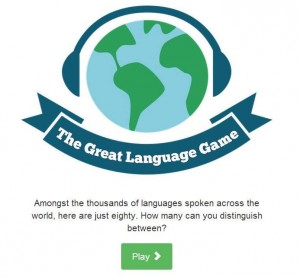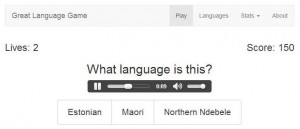by Imogen Stark
Do you ever get the feeling that full stops, commas, hyphens, dashes, colons, semicolons, apostrophes, quotation marks, question marks, exclamation marks, parentheses, brackets, braces and ellipses just aren’t enough to satisfy your everyday language needs? Here are some little-known punctuation marks which I (personally) think we should all be using. For those of you who are really keen, I’ve also included the keystroke keys so that you can go ahead and show off.
THE INTERROBANG: We’ve all experienced the feeling of shock and question simultaneously (“You don’t know about The Definite Article?!”) which is normally signified with one exclamation and one question mark. It can, however, be replaced with the interrobang.
Keystroke keys:
- HTML: ‽
- Unicode: U+203D
- Word: Alt + 8253
- If all else fails: `:-O / :O`
THE RHETORICAL QUESTION MARK/ PERCONATION POINT: Simply a backwards question mark, proposed all the way back in the 1580s by Henry Denham.
Keystroke keys: 
- Unicode: U + 2E2E
- If all else fails:`;-.`
THE IRONY MARK: Although it may appear very similar to the previous perconation point, it’s actually ever so slightly elevated, a little rounder and smaller. Unlike most punctuation marks, it also precedes the statement so that it is read as initially intended. Hervé Bazin proposed it in 1966, alongside 5 other (soon to be revealed) marks.
Keystroke keys:
- Unicode: U + 061 F
- If all else fails: `;-p`
THE LOVE POINT: With Valentine’s Day just around the corner, this is surely going to reach its peak use. Consisting of two exclamation marks, one of which is mirrored (but both sharing the same point – n’aww) it’s another of Bazin’s proposals intended to indicate affection. Although it’s probably been replaced by the very 2007-esque <3, it’s a sweet proposal.
Keystroke keys:![Love_point[1]](http://blogs.kent.ac.uk/thedefinitearticle/files/2015/02/Love_point1.jpg)
- Word: Alt + 3
- If all else fails: `<3`
THE ACCLAMATION POINT: Another of Bazin’s designs, he described it as “the stylistic representation of those two little flags that float above the tour bus when the president comes to town”. How thoughtful. It represents the idea of welcoming someone, so might be used in the context of “I’m so happy to see you [acclamation point]”
Keystroke keys:![Acclamation_point[1]](http://blogs.kent.ac.uk/thedefinitearticle/files/2015/02/Acclamation_point1.png)
THE CERTITUDE POINT: Bazin’s at it again with this punctuation mark used to end declarations with steady conviction.
Keystroke keys:
- If all else fails: `]:-|`
THE DOUBT POINT: The opposite of the certitude point, this one can be called upon if you ever need to end your sentence with a note of scepticism.
Keystroke keys:
- If all else fails: `(:-/`
THE AUTHORITY MARK: Bazin’s last proposal, the authority mark is used to give your sentences an air of expertise, or to indicate when advice should most definitely be taken. “Read The Definite Article [authority mark]”.
Keystroke keys:![Certitude_point[1]](http://blogs.kent.ac.uk/thedefinitearticle/files/2015/02/Certitude_point1.png)
- If all else fails: `):-|`
THE SARCMARK: My favourite of them all, this was proposed by Paul Sak, who branded it as “The easy-to-use punctuation mark to emphasize a sarcastic phrase, sentence or message.”
Keystroke keys:
THE SNARKMARK: An alternative to the Sarcmark, this is again used to indicate that a sentence should be taken beyond its literal meaning. However, UNLIKE the Sarcmark, this one isn’t copyrighted, and it’s also a lot easier to type. You’re welcome.
Keystroke keys:
THE ASTERISM: This was once used to divide subchapters within books and indicate breaks in long periods of text, but it is now almost always shunned in favour of the (far less funky looking) triple asterix (***). Definitely think we should bring this one back
Keystroke keys:
- HTML: ⁂

- Unicode: U + 2042
- Word: Alt + 8258
- If all else fails: `***`
THE EXCLAMATION COMMA AND QUESTION COMMA: Last but not least, these two hybrid marks allow you to be excited or inquisitive without having to end a sentence. Ingenious, eh?
Keystroke keys:
(Piece adapted from http://mentalfloss.com/article/12710/13-little-known-punctuation-marks-we-should-be-using)





![Love_point[1]](http://blogs.kent.ac.uk/thedefinitearticle/files/2015/02/Love_point1.jpg)
![Acclamation_point[1]](http://blogs.kent.ac.uk/thedefinitearticle/files/2015/02/Acclamation_point1.png)


![Certitude_point[1]](http://blogs.kent.ac.uk/thedefinitearticle/files/2015/02/Certitude_point1.png)





